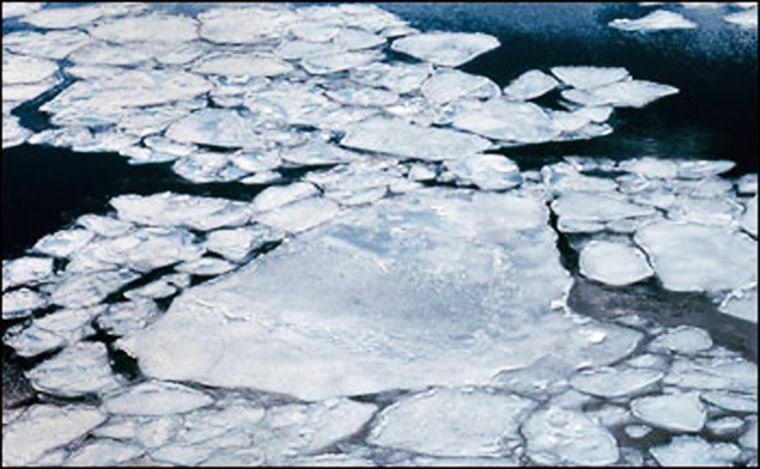A surprising Arctic warm spell is responsible for a 2005 that was likely the warmest year since instrument recordings began in the late 1800s, a leading researcher said Tuesday in describing a new federal analysis.
James Hansen, director of NASA’s Goddard Institute for Space Studies, said the analysis had to estimate temperatures in the Arctic from nearby weather stations because no direct data were available.
As a result, he said, “we couldn’t say with 100 percent certainty that it’s the warmest year, but I’m reasonably confident that it was.”
Hansen and other researchers wrote in the analysis that “the inclusion of estimated Arctic temperatures is the primary reason for our rank of 2005 as the warmest year.”
The report did not break down Arctic temperatures but an earlier study found they are warming up twice as fast as other areas around the globe.
The analysis follows a prediction the institute made in December that 2005 would be the warmest on record.
Hansen noted that 2005 edged out the prior record year, 1998, without help of the “El Niño of the century” that pushed temperatures up in 1998. El Niños are ocean currents that can impact weather globally.
“Record warmth in 2005 is notable, because global temperature has not received any boost from a tropical El Niño,” the report stated. “1998, on the contrary, was lifted 0.2°C above the trend line by” El Niño.
Over the past 30 years, Earth has warmed a bit more than 1 degree Fahrenheit in total, making it about the warmest it’s been in 10,000 years, Hansen said. He blamed a buildup of heat-trapping greenhouse gases from the burning of fossil fuels.
Jay Lawrimore of the federal government’s National Climatic Data Center said his own center’s current data suggest 2005 came in a close second to 1998, in part because of how the Arctic was factored in. But he said a forthcoming analysis “will likely show that 2005 is slightly warmer than 1998.”
